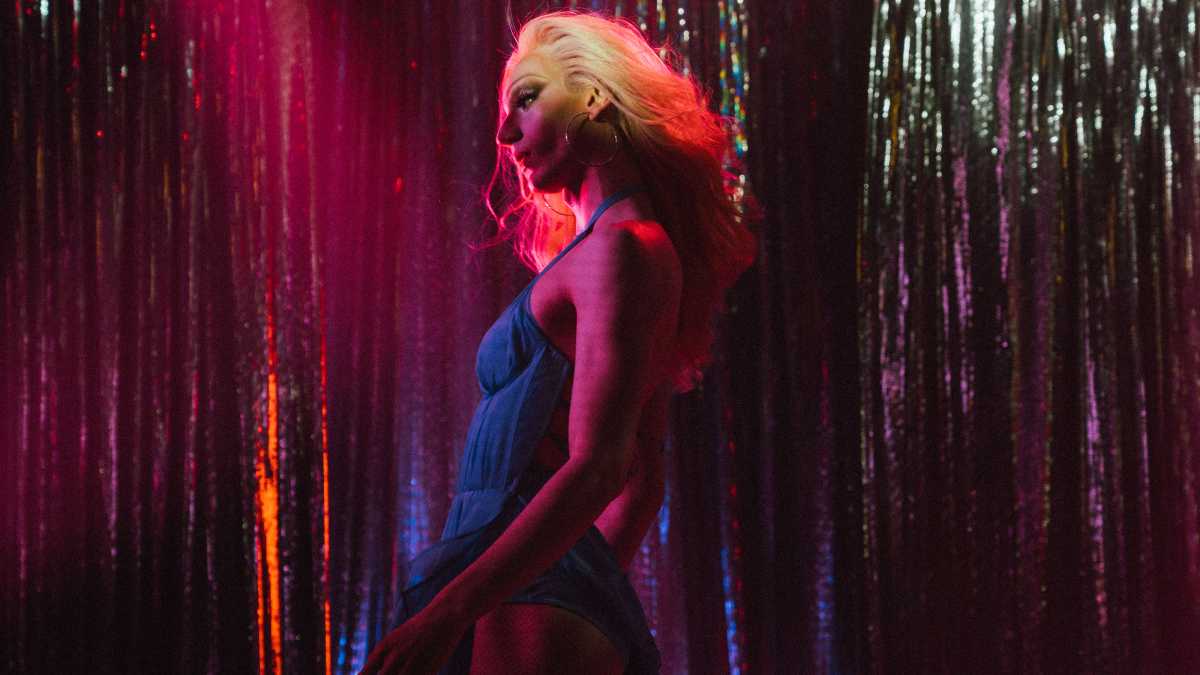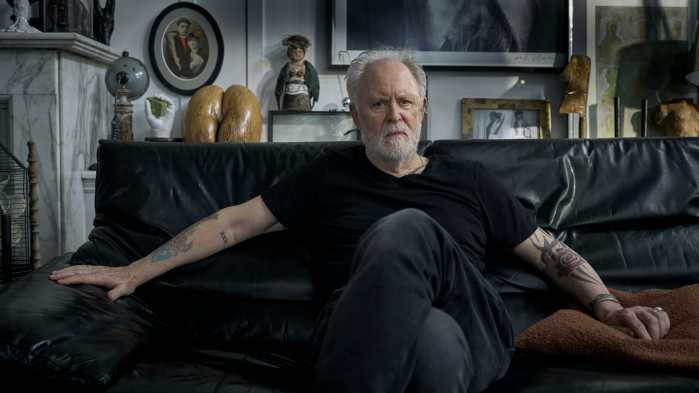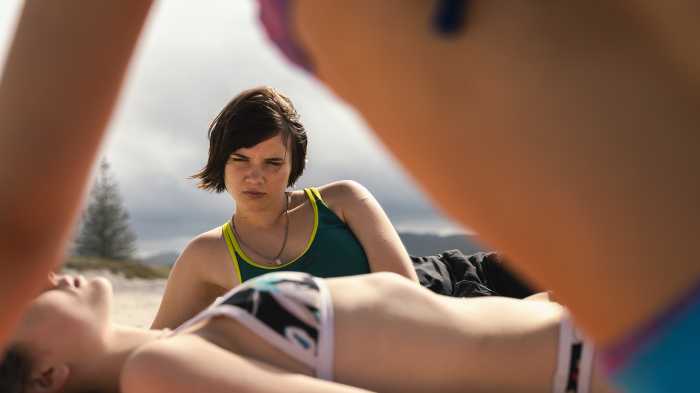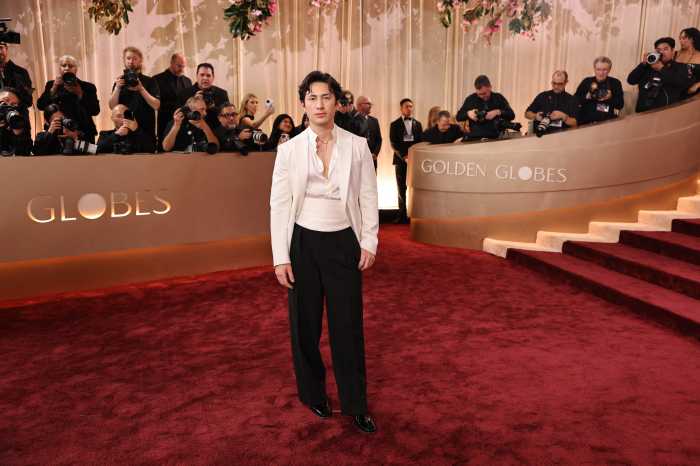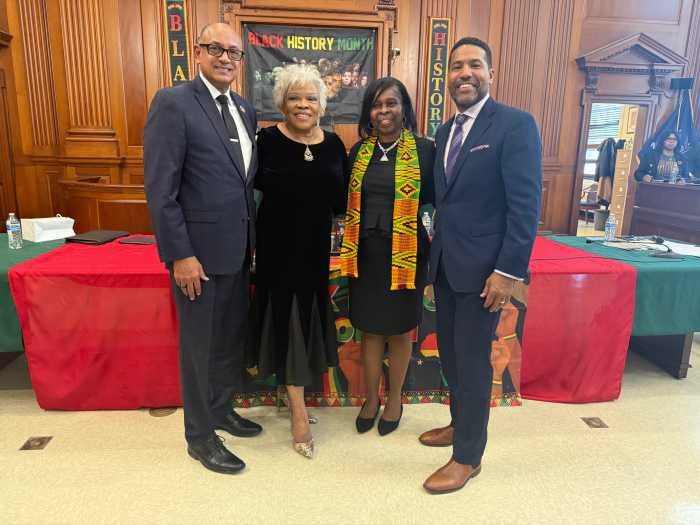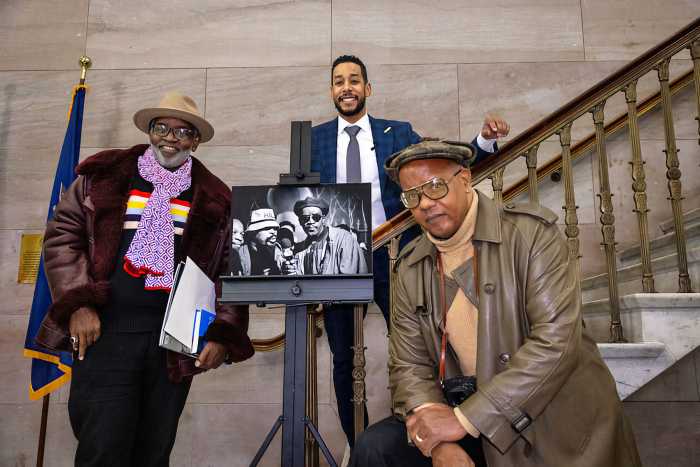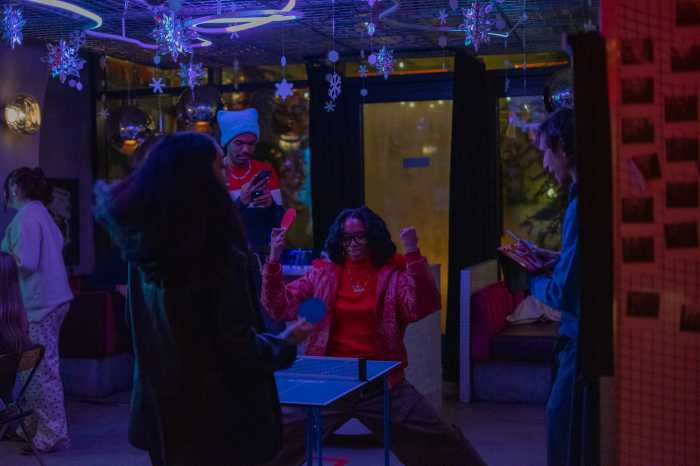“Solo” is set largely in a drag bar where Simon (Théodore Pellerin) regularly performs. When Olivier (Félix Maritaud) arrives with a new act for the club, he and Simon spark an attraction, and quickly couple up. They even start performing together. But their relationship hits a snag as Olivier becomes more controlling, keeping Simon from his family. Moreover, when Simon’s estranged, successful mother Claire (Anne-Marie Cadieux) returns after a long absence, Simon craves her elusive affection. Pellerin gives a superb performance as a young man who absorbs Olivier’s constant criticism and Claire’s passive-aggressive behavior, until he reaches a breaking point. He generates empathy even when he is at his weakest moment. Maritaud is also fantastic in his club scenes and when Olivier is being toxic. And the performances on stage are showstopping.
Pellerin spoke with Gay City News about doing drag and “Solo.”
What appealed to you about playing Simon? Were you interested in doing drag?
It was a strange process. Sophie and I had been working together for a long time. It wasn’t like the usual process where you read it, and then project yourself in it, and start the work to reach the character. Sophie told me about the project 2 or 3 years before we shot it. So, it was a slow cooking of getting to know what the movie would be, who the character would be, and what the themes of the film are. It’s hard to say what attracted me to Simon. I got to know the character through conversations. At the wrap party for “Family First,” I told her I would really like to play a drag queen at some point. I’ve always been more interested in actresses than actors. Playing a drag queen is not being a woman, it’s very different, but it is a space in which I am allowed to really tap into femininity, or an extreme version of femininity, or certain idea of femininity. It was something I wanted to do. I loved doing it, but it was terrifying.
Can you talk about your preparation to play the role and finding the character through doing the makeup, the outfits, and learning the choreography?
We started the physical work quite early with the choreographer. I learned to walk in heels a few months before we started shooting, so that [showed] me what physicality needed to be there. Makeup, clothes, and wigs is so much of it. The process that was interesting to me was “How am I to feel this is where I am at my most comfortable and my most luminous?” That is how [drag queens] feel. They are at their best and most confident on stage. I had to allow myself to be in that space as well. That process was very interesting. That also indicated so much about how Simon would be in his daily life when he is not in drag. It comes and goes, and it is not who he is entirely, but it is a big part of him. When does it come out or when it is subdued? The last number in the film was first one we shot, and it was the only one we didn’t have a choreographer for. It was my first time being with audience of queer people wanting to see a drag show. It was terrifying, but it gave me a lot information about a huge aspect of Simon’s life. You can’t really prepare for it. You have to do it and feel it. All these things, you can’t imagine or know how you feel, but when you do them, that’s how it is.
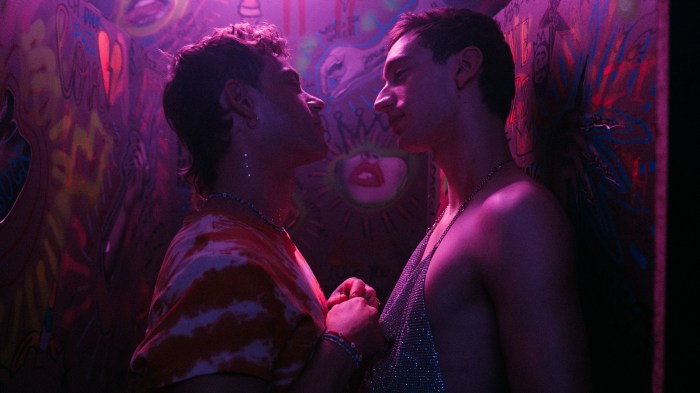
Simon is told he gets his strength and power from doing drag. He says he “has to feel it.” Why is drag so essential to Simon? What does he get out of his performance?
That space in which you are allowed to be. What was interesting in the process was to allow myself to be comfortable in that extreme or satirical femininity. You have to deconstruct a lot. At first, I was intimidated and because we were with real drag queens, there was a certain dynamic and humor and a certain poetry that created a space. It became that space for us, being on stage and performing. It was very playful, and an environment where we felt like our characters, and we were in control or in a space of extreme strength. It is a space where who you are is glorified and really seen and you can amplify things that have to be subdued. That femininity becomes a value, and you play with that and is becomes extremely validating and validated.
What observations do you have about Simon’s relationship with Olivier? Why does Simon put up with Olivier’s toxic manipulative behavior?
For me that was a big thing—why does he stay? Why isn’t he leaving? Simon is fundamentally young, not in age, but he is green. He hasn’t been in rough contact with the world. He’s gay, and does drag, and he is open about that. His family is accepting; he has strong foundational relationships with his sister and his dad. His mother is gone. Otherwise, his world is a bit of a nest. He’s always been quite comfortable, so it’s the first time he’s hit by something so strong. The parallels with his mom are clear.
Let’s talk about Simon’s relationship with his mother, who also manipulates him. Why does he crave Claire’s approval so desperately?
There is a big aspect to wanting to be his mother, to correspond to what she is. There might be an aspect of that with Olivier — who is more daring; he is more punk, he is dirtier, more worldly. Olivier is able to do his own costumes, where Simon collaborates with his sister. Both [Olivier and Claire] are incarnations of things Simon wants to be and aspires to become in different ways. They are both unattainable characters, and their love is completely conditional. It is give-and-take, and that creates addiction in the relationships — when you feel seen and feel you are a part of something and that is taken away from you, you wonder why. What have I done? How was I when I was given love and how do I become that love person who is loved again? It’s a constant modulation, and you work at being that version of yourself that deserves love and attention. That constant work within yourself creates disassociation, and you do not know how you’re feeling. Simon chases after his mom and Olivier, but he is cut off from himself.
“Solo” | Directed by Sophie Dupuis | Opening May 24 at the IFC Center | Distributed by Music Box Films

